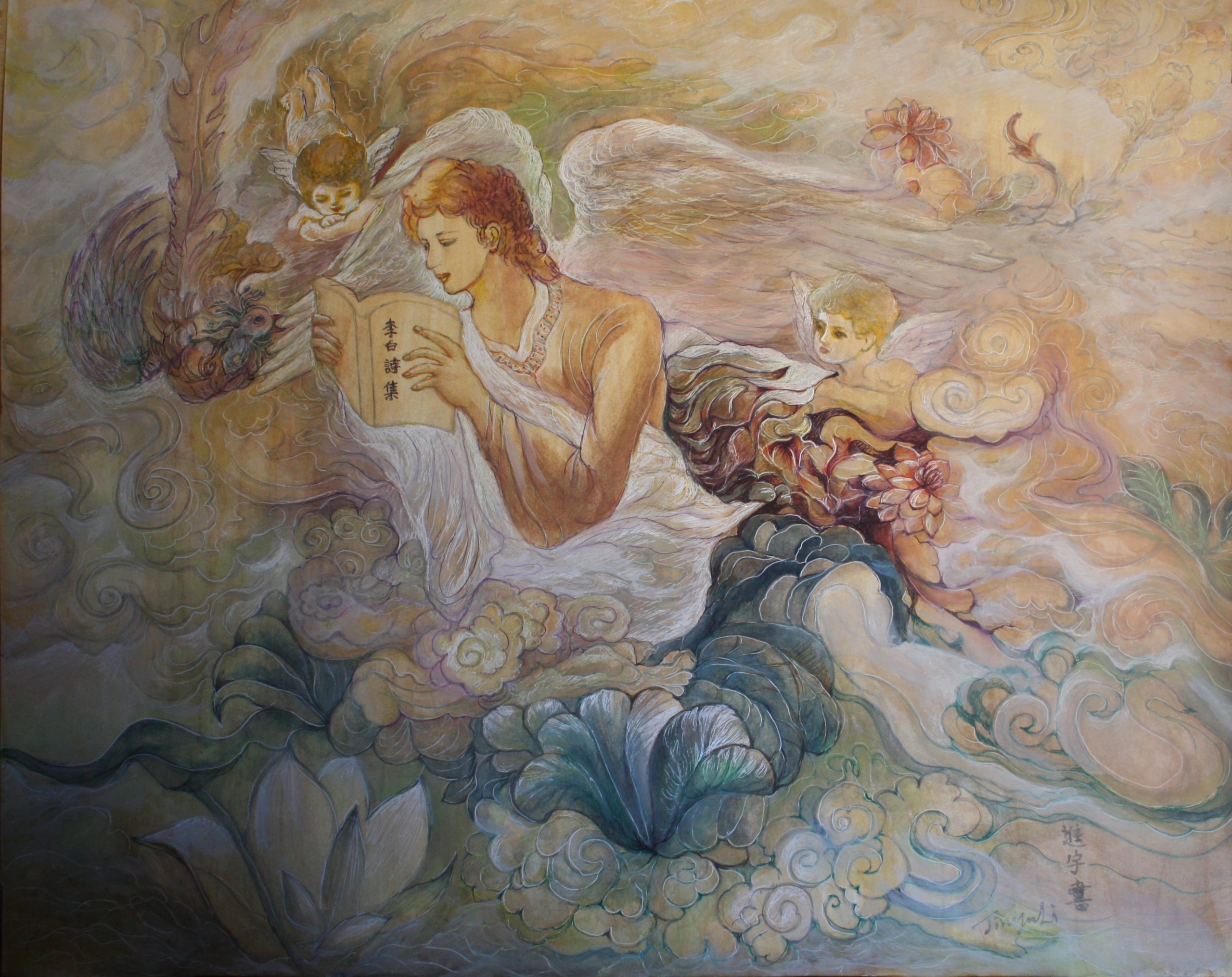‘On The Group Of The Three Angels Before The Tent Of Abraham, By Raphael, In The Vatican’
O, now I feel as though another sense,
From heaven descending, had informed my soul;
I feel the pleasurable, full control
Of Grace, harmonious, boundless, and intense.
In thee, celestial Group, embodied lives
The subtle mystery, that speaking gives
Itself resolved; the essences combined
Of Motion ceaseless, Unity complete.
Borne like a leaf by some soft eddying wind,
Mine eyes, impelled as by enchantment sweet,
From part to part with circling motion rove,
Yet seem unconscious of the power to move;
From line to line through endless changes run,
O’er countless shapes, yet seem to gaze on One.
— Washington Allston (1779–1843)
Washington Allston was an American painter and poet, born in Waccamaw Parish, South Carolina.
Featured Image: Liza Voronin/The Epoch Times
Analysis by Christopher Nield:
This poem describes a Stendahl moment: a moment of incandescent beauty that overwhelms, dazes, and transfigures the viewer. The object is Raphael’s depiction of three angels visiting the prophet Abraham. The viewer is you.
Every reader reciting the words becomes the ‘I’ of the poem. It begins with a powerful, repeated assertion of personal emotion: “I feel.” This feeling is compounded by pleasure—a sensuous, gut response to line, color, and form. The rational mind is overpowered, smashed and yet intoxicated.
In Raphael’s painting, we see the prophet Abraham bowed down, half in fear, half in wonder, at three visitors in front of his humble home. They are richly dressed with billowing, colorful robes. Their gestures are flowing and rhythmical, as if they were dancing. They are otherworldly. They are angels. However, for Raphael, these three angels also evoke the three graces of Greek mythology.
What on earth do we do when angels come knocking on our door? In this story from the Book of Genesis, Abraham runs to fetch some meat, some butter, and some milk. He is then told that his wife Sarah will have a son, even though they are both “old and well stricken in age.” So this is the story of miraculous new life.
Raphael is so skilled that when we gaze upon his artistry, it is “as though” our five senses are replaced by a sixth “from heaven.” This conditional phrase subtly replaces the religious nature of the image, dating back to the Renaissance, with the Romantic cult of the sublime.
To understand the sublime, we only have to take a look at Allston’s own canvases. As a Romantic painter, he depicts black waves beneath brooding storms, glimmering streams dominated by ghastly full moons, sunlit sails by the balmy Mediterranean shore, and Biblical figures of lone prophets amid desert sands. He takes us away from the routine world of society into far-flung realms, both outer and inner.
Together, with Allston, as we look on Raphael’s three divine figures, we feel the “pleasurable, full control/Of Grace.” In other words, we are out of control. We are controlled by grace, in a kind of angelic possession. We are part now of a living universe that is “harmonious, boundless, intense.” The universe becomes meaningful, infinite, and full of feeling—and we are right at the center.
Somehow ceaseless “Motion” and the stillness of “Unity” are reconciled. “From line to line,” the painting and the poem appear to merge too. Gazing on both, our sight is “borne like a leaf.” This wind is the Holy Spirit, prana, or sheer inspiration. Our eyes are “impelled,” under the control of Grace, to dart to and fro—to take everything in. Their circling motion traces a figure of eternity, where “endless changes” and “countless shapes” resolve into a single image. The many reveals the “one.” To echo this, the poem begins and ends with an “O,” a sacred circle.
The Jungian analyst Erich Neumann writes that when we make ourselves vulnerable to art, there is “a streaming moment, as flowing and ungraspable as the vitality of life itself.” Allston is careful to frame his observations within a psychological context, using phrases like “as though” and “seem” to avoid being too certain, preachy, or excessive. The poem is less about a religious ideal than an imaginative one. It is through great art that religious and non-religious people can gather, in a shared experience of mute wonder.
Christopher Nield is a poet living in London.















